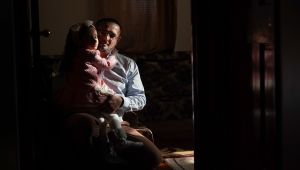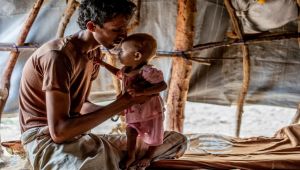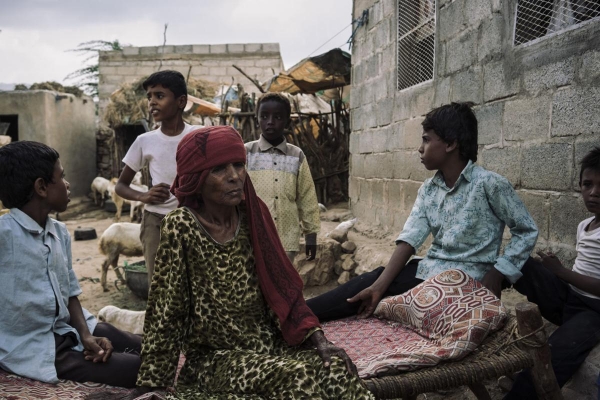
[ Jarada Ahmed Daghshar, a traditional healer in the village, performs her folk ritual on many children ]
Three-year-old Abdo Saleh lay on a cot, unable to walk or speak, his tiny body broken by hunger. His face was skeletal, his arms and legs thin as twigs. He weighed 10 pounds.
A few miles away, markets were stocked with all kinds of food. But prices have risen so sharply that his parents cannot afford the milk, fruits and vegetables that are in abundance. "Sometimes, we go two days without food," said his father, Saleh Abdo Ahmed, sadly squeezing his son's raisin-size toes.
After four years of conflict, more than 20 million Yemenis — roughly two-thirds of the population — don't have enough to eat. In most cases, it's not because food is completely unavailable but because it's unaffordable, priced out of reach by import restrictions, soaring transport costs due to fuel scarcity, a collapsing currency and other man-made supply disruptions.
Economic measures, largely imposed by a Saudi-led military coalition backed by the United States, have helped produce what the United Nations considers the world's most severe humanitarian catastrophe.
And over the past year, the hunger crisis has worsened dramatically, with a 60 percent increase in the number of districts now considered to face emergency conditions, according to an analysis released this month by a consortium of aid agencies. More than half now fall in this category.
Yet even as the world has begun to take note, many Yemenis remain out of reach of assistance. The hardest-hit areas are often the most remote, and the relentless violence coupled with threats posed by competing armed groups have made it daunting for aid agencies to deliver relief. The Yemeni government itself is so broken that it can barely help.
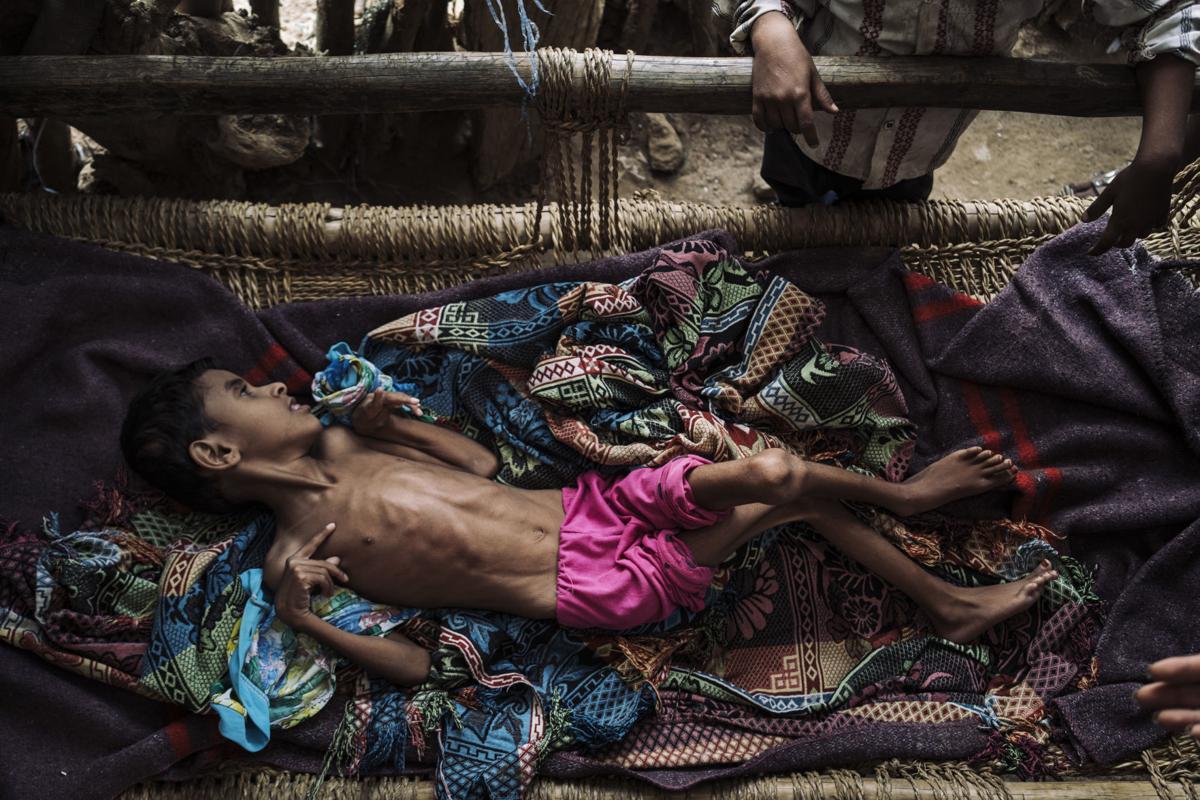
The crisis, at its root, reflects what critics say is the reckless way that Saudi Arabia's de facto leader, Crown Prince Mohammed bin Salman, is conducting war in Yemen against Iran-aligned rebels. The specter of an emerging famine is among the reasons the U.S. Senate last week voted to end U.S. support for the coalition, which is also blamed for killing thousands of civilians in airstrikes.
"Today, many Yemenis say they are facing two wars," said Abeer Etefa, a senior regional spokeswoman for the World Food Program. "The first war is the one that comes from the skies. Sometimes it impacts their lives, other times it doesn't. The second war is the inflation war. That impacts their lives every day."
Those who are relatively fortunate are noticed by aid workers, often by chance, and brought to overcrowded clinics. The less fortunate, who medical workers say form the majority, waste away as their parents helplessly watch. Many families are unable to afford medical care or even transportation to clinics.
Often, parents are forced to decide between saving their sick children and feeding their healthy ones.
Abdo would be dead by now if it weren't for a chance visit by a medical worker and the willingness of a nurse at the district's only pediatric clinic to travel to this village and retrieve the boy. By then, Abdo's father no longer had the means to save his boy. "I was waiting for God's fate," said Ahmed.
In their new analysis, the aid agencies found that more than 20 million Yemenis are "food insecure," or unable to adequately feed themselves. Of those, 65,000 are in a "catastrophic" state. That figure is expected to nearly quadruple in upcoming months, and those people "will die if we can't reach them with assistance," said Lise Grande, the U.N.'s top humanitarian official in Yemen.
Already, as many as 85,000 children under 5 may have died of hunger since the start of the war, the aid agency Save the Children said last month. In the worst-hit areas, concentrated in rebel-held territory in northern Yemen where coalition restrictions are most stringent, thousands more children are dying of malnutrition-related illnesses.
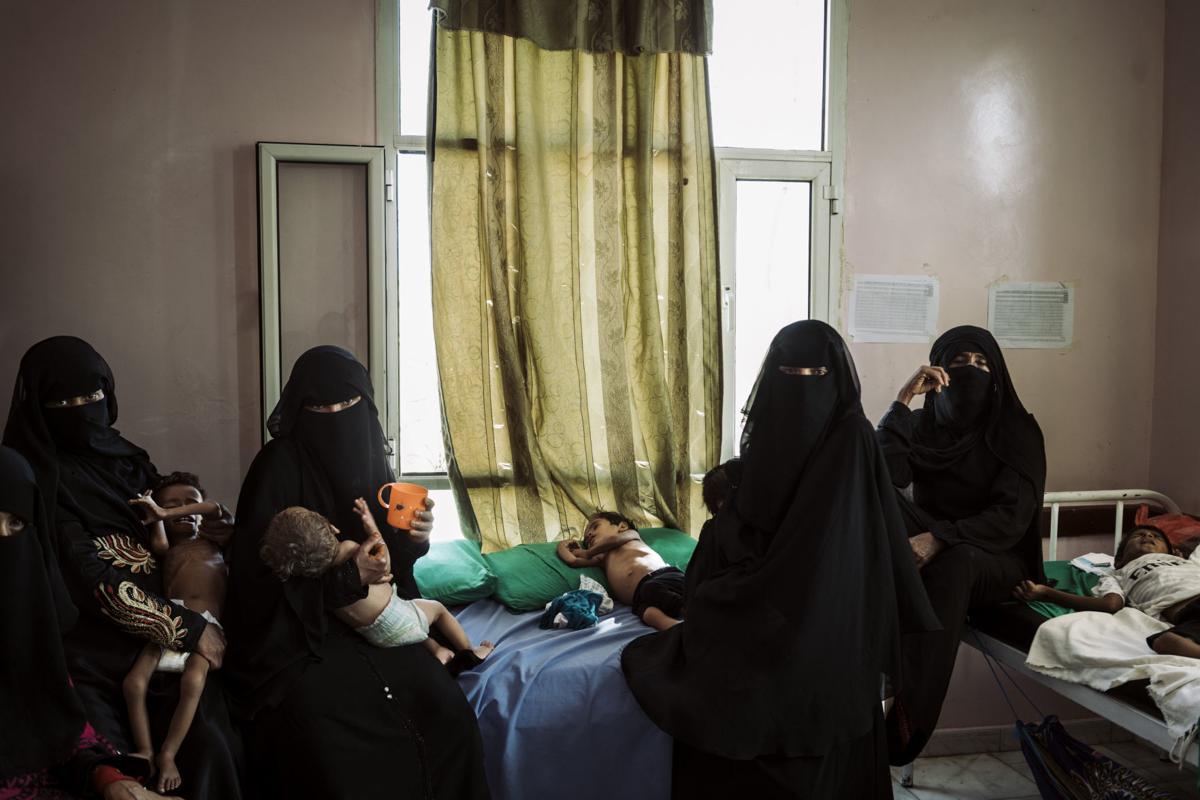
A raft of economic policies has conspired to raise food prices by an average of 137 percent since the start of the conflict, according to the World Food Program, bringing Yemen to the brink of famine.
In an effort to strangle the rebels, known as Houthis, the Saudi-led coalition backing the Yemeni government has imposed import restrictions, including on food, medicine and fuel. The resulting spike in fuel prices has led to higher transport costs, which in turn has also driven up food prices.
The coalition, in the meantime, tightly controls the movement of goods and people by air, sea and land into northern Yemen, where 80 percent of the population lives. Those controls have further disrupted supplies and boosted the prices of food, fuel and other goods even more.
The shooting from the war also has played a devastating part. One-third of the 18,000 airstrikes carried out by the coalition have targeted nonmilitary sites, including factories, farms, markets, power plants and food warehouses, according to the Yemen Data Project. Those attacks have shattered domestic food production and distribution and have erased livelihoods, leaving Yemenis with less to spend.
Perhaps most disastrous for a country that must depend overwhelmingly on imported food, the purchasing power of the Yemeni currency has cratered. The government and its Saudi patrons have mismanaged the central bank, for instance by liberally printing money, while foreign currency reserves have dried up as fighting choked off energy exports, gutting the rial.
The Saudi-led coalition did not respond to a request for comment. But it has previously called the hunger crisis exaggerated and blamed the rebels.
To a lesser extent, the rebels are in fact also at fault for rising prices. They impose heavy checkpoint "fees" on businesses importing food and fuel, aid workers say.
The head of the rebels' Supreme Revolutionary Committee, Mohammed Ali al-Houthi, said they have not received complaints about such fees.
The village of Al Jarb is nestled in an isolated, mountainous area of northern Yemen. Its residents are mostly illiterate and live in mud-brick homes. They have always been poor, but now their lives have sunk to unseen levels.
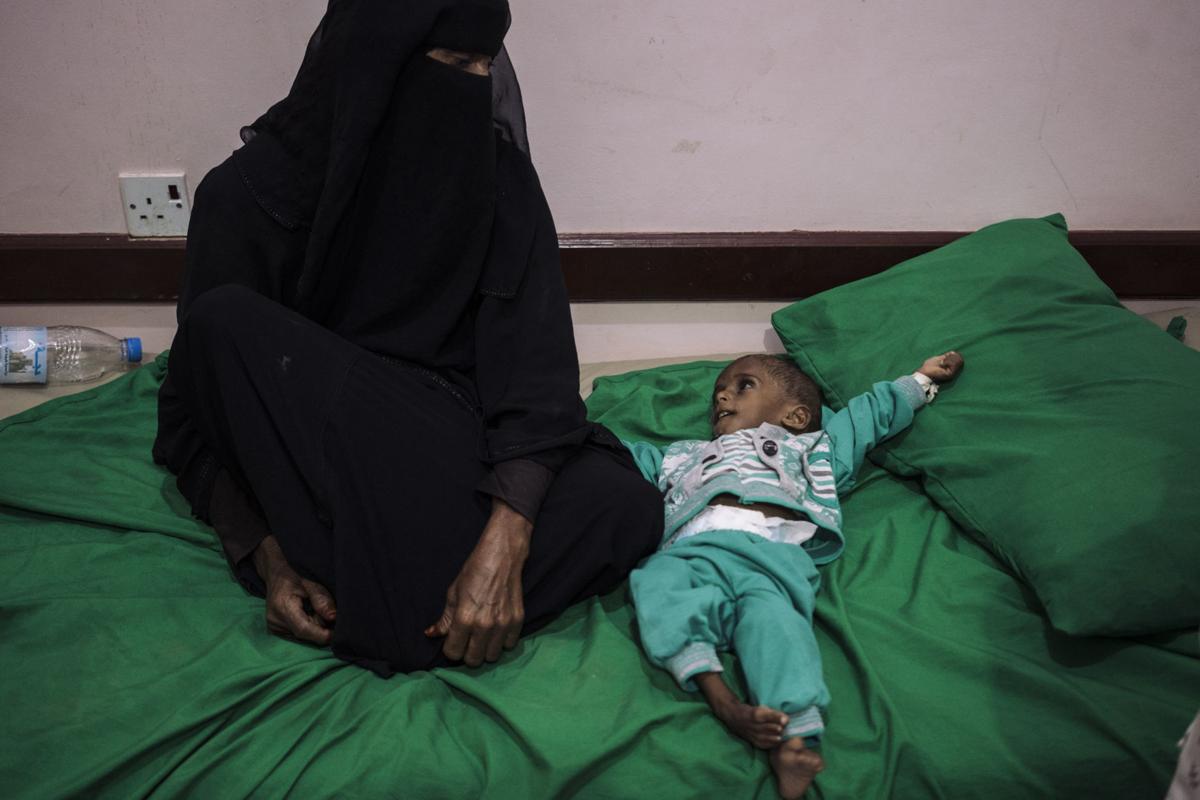
Some villagers had once worked in neighboring Saudi Arabia and sent money home. But with borders closed and the territory crisscrossed with front lines, the jobs and the money evaporated. Now, most of the villagers survive by picking khat, the leafy stimulant chewed by most Yemenis.
Ahmed still earns the same salary picking khat, roughly $2 a day, that he made before the war. But prices of sugar and other staple foods have shot up.
"I can buy less food now," said Ahmed, the sole provider for his wife and four children.
Today, 40 percent of the roughly 90,000 people in Aslam District, which includes Al Jarb, are facing "famine-like" conditions — one step below famine, according to the aid groups' analysis.
In mid-November, a medical worker named Hazim Muhsin came to the village to conduct a nutritional survey. When he reached Abdo's compound, he was shocked by the boy's emaciated state.
By then, Abdo's parents had taken him to several hospitals and clinics, selling their wedding jewelry and other possessions to pay for transportation and medical care. Abdo would improve at first but always slip backward into cycles of vomiting and diarrhea. His parents also took him to a traditional healer who performed a folk ritual known as "maysam" — or branding — to eject the "devil" from him. Abdo continued to deteriorate.
After seeing Abdo's condition, Muhsin implored his father to send him to a government clinic.
"But the father had reached a stage that he gave up," recalled Muhsin. "He saw the boy wasn't improving."
After two weeks of trying to persuade Ahmed, Muhsin called Makiya Ahmed Mehdi, the head nurse at the pediatric clinic. He sent photos and videos of Abdo through WhatsApp.
The rail-thin nurse had every reason not to follow up. Her clinic was overcrowded. The Yemeni government, which has withheld the salaries of more than 1 million government employees in rebel areas, hadn't paid her in five months. Still, using money donated by a charity, Mehdi hired a pickup truck for $10 and went to Al Jarb, a 40-minute drive away.
"If you don't bring him to the clinic, he will die in a week," Mehdi told Ahmed after examining his son's symptoms — the loose skin, the scabs on his skull, the blank stares. A raspy cough hinted at a chest infection or even pneumonia.
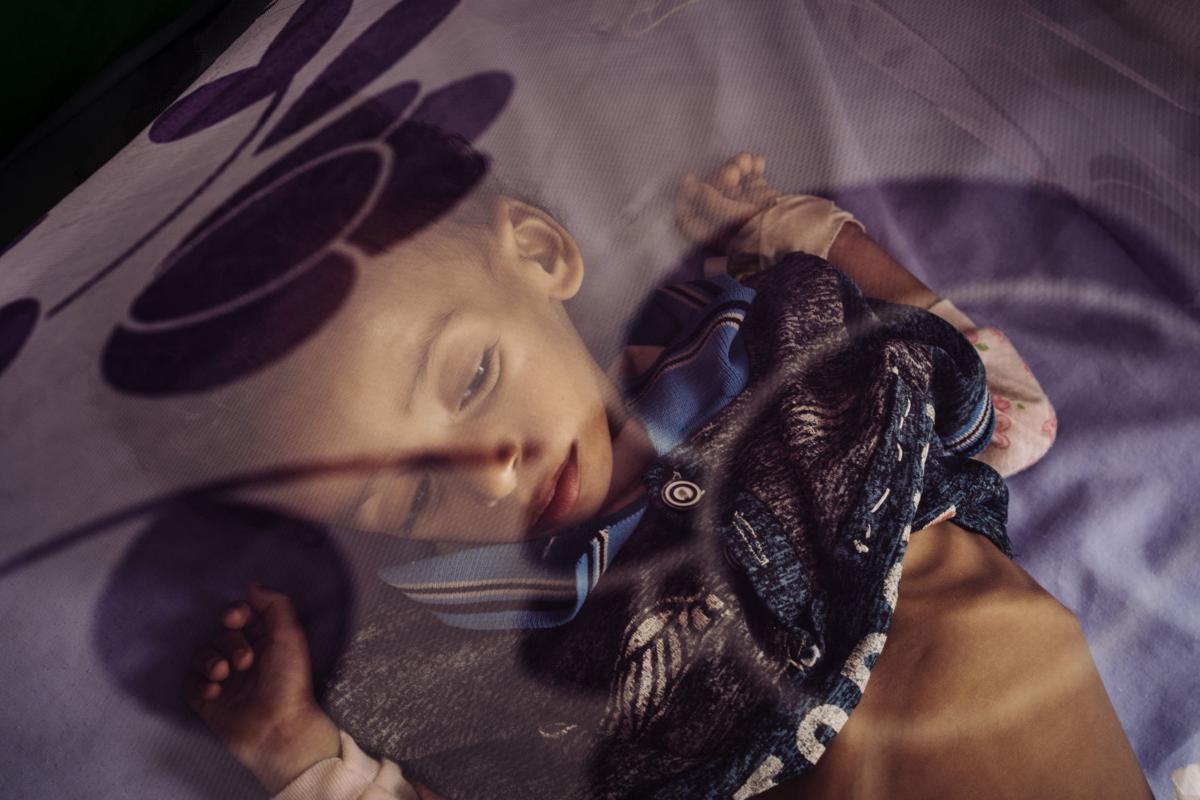
"I can't take him there," replied his father, who was slim and sunburned. "I don't have money for transport."
Ahmed had been working less and less. Landowners had been cutting back on laborers in the khat fields as the increasing price of fuel, used to power water pumps, raised production costs. At the same time, a flood of unemployed laborers were willing to work for much less money than Ahmed.
"Every day, my family waits for me to bring food," Ahmed said. "If I don't make money, they go hungry."
Mehdi offered to reimburse him the $10 fare to the clinic. But Ahmed said drivers require advance payments. Even if he had money, he could not afford to take off from work.
His wife couldn't take Abdo to the clinic either. She had left Ahmed a day earlier after they argued about whether to buy food — or save their son.
Abdo suddenly gasped for air.
Mehdi shook her head. She wondered how she was going to rescue him.
After Mehdi examined Abdo and listened to his father's refusal, several villagers arrived and led her to another compound. In front of a one-room mud-brick house was 12-year-old Maysa Mohammed Ali.
She couldn't walk or speak and suffered seizures. Her ribs pressed against her skin, her face gaunt, her arms and legs a jumble of bones. She was lying on a piece of cardboard atop a cot.
"We have nothing to feed her now," said her mother, Shuwaya Mohammed.
Maysa has 12 other siblings, and the whole family lives on the $1 to $2 a day their father earns from picking khat. The healthy ones are fed first, not least because they can voice their complaints, said her mother. Disabled Maysa, who can't utter a word, is always the last to eat.
"Only if there is extra food, we give it to her," said her mother without any hint of emotion. "Sometimes she goes two or three days without eating."
A few minutes later, another villager arrived and told Mehdi of yet another case. But the sky was already darkening, and Mehdi didn't have time to see the boy.
"Three cases in one village!" said Mehdi. "These are only the ones we know. There are 20 other villages in this area we don't know about."
In her clinic, mothers were already doubling up in beds with each other, sleeping with their children. Maysa would have to be left behind because she was not on the verge of death.
But Abdo was.
So Mehdi told Abdo's father and grandmother to pick up the boy and come with her to the clinic.
As the truck started to roll, an old woman reached out and kissed Mehdi's hand.
At the clinic, Abdo was weighed in a bucket attached to a scale. Mehdi's staff measured his height and the circumference of his brittle limbs. They wrapped him in a diaper — the first one he'd worn in a year, which was the last time his parents could afford one.
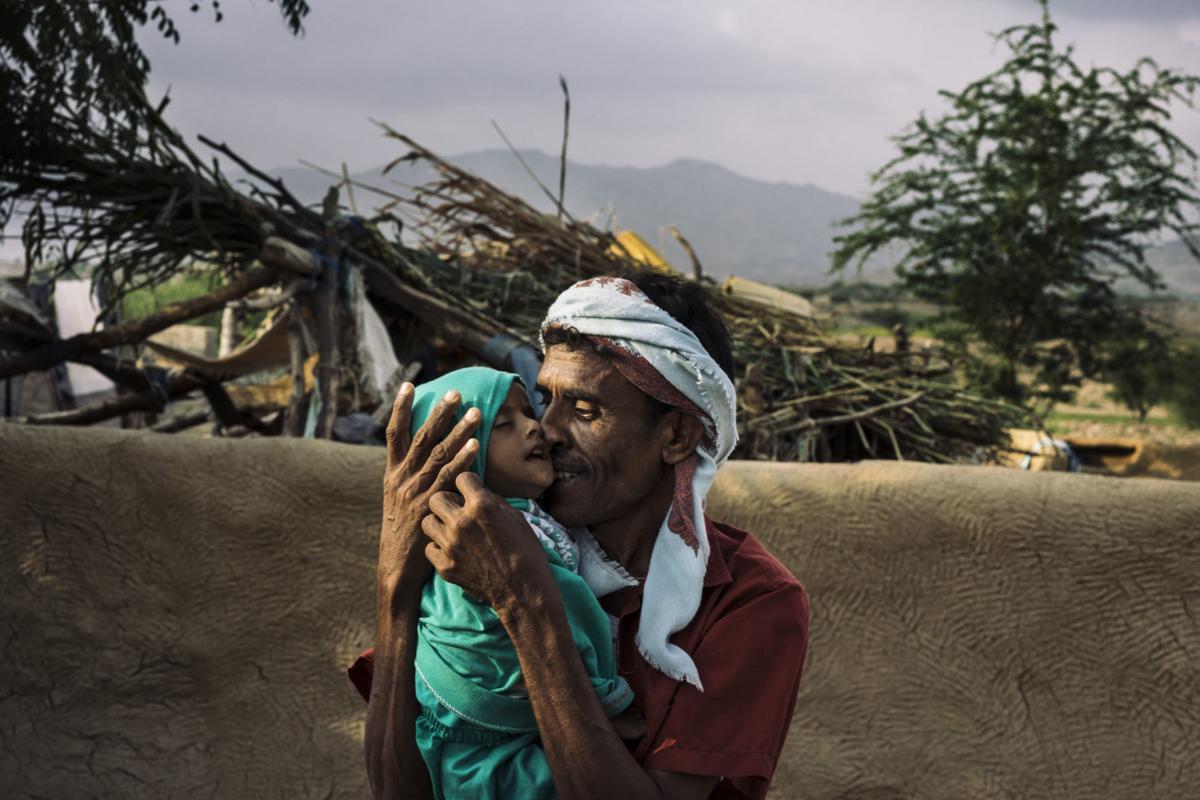
In another room were seven mothers with bony, underweight babies. The mothers, too, were thin and suffering from malnutrition.
The following day, Abdo's mother arrived at the clinic.
Abdo smiled widely when he saw her. For a moment, however brief, his joy brought out the boy he should have been.
______________
Sudarsan Raghavan is The Washington Post’s Cairo bureau chief. has reported from more than 65 nations and territories. He has been posted in Baghdad, Kabul, Johannesburg, Madrid and Nairobi. He has covered the wars in Iraq and Afghanistan, the Israeli-Palestinian conflict, and the 2011 Arab revolutions, as well as reported from 17 African wars.
